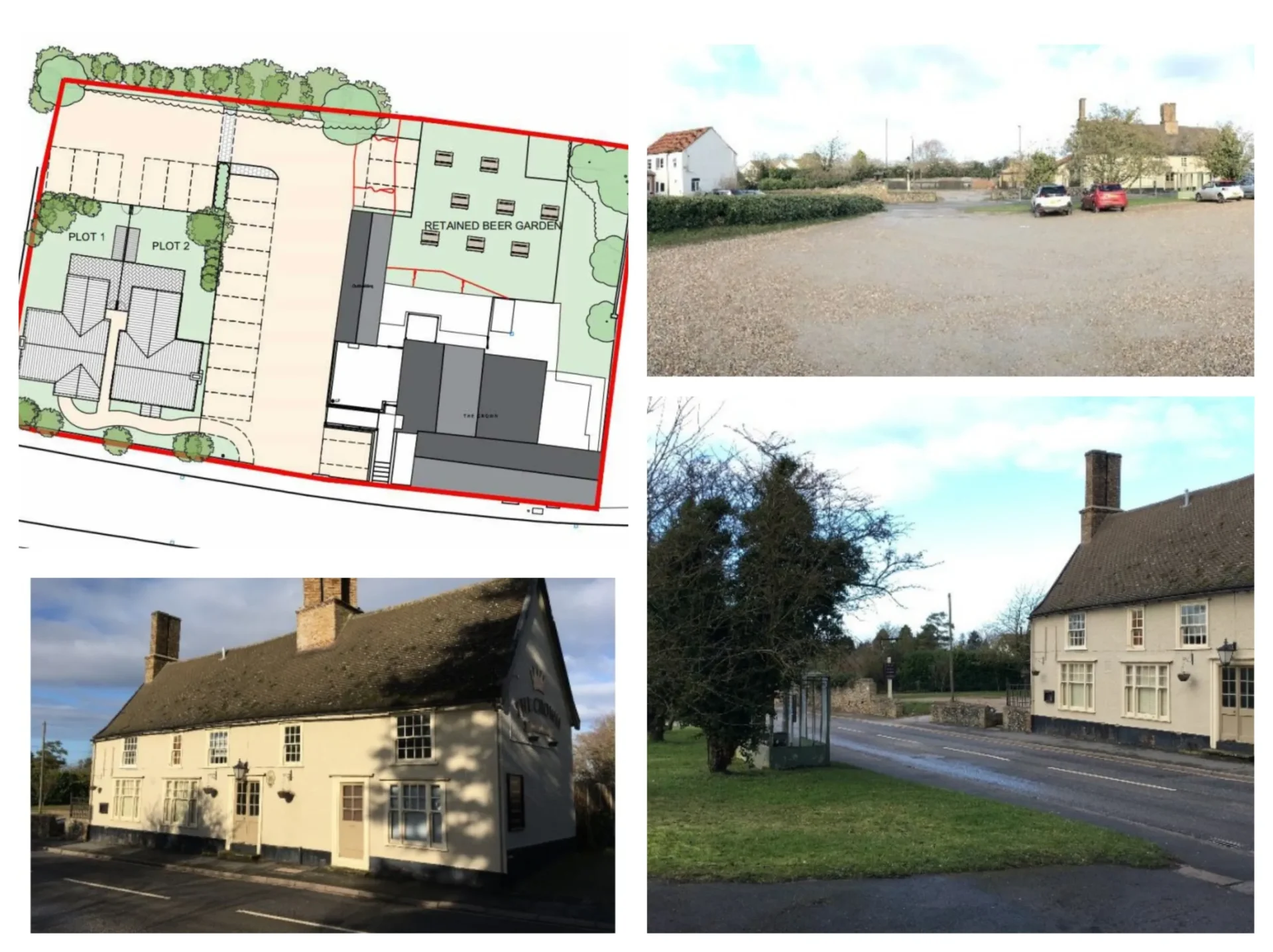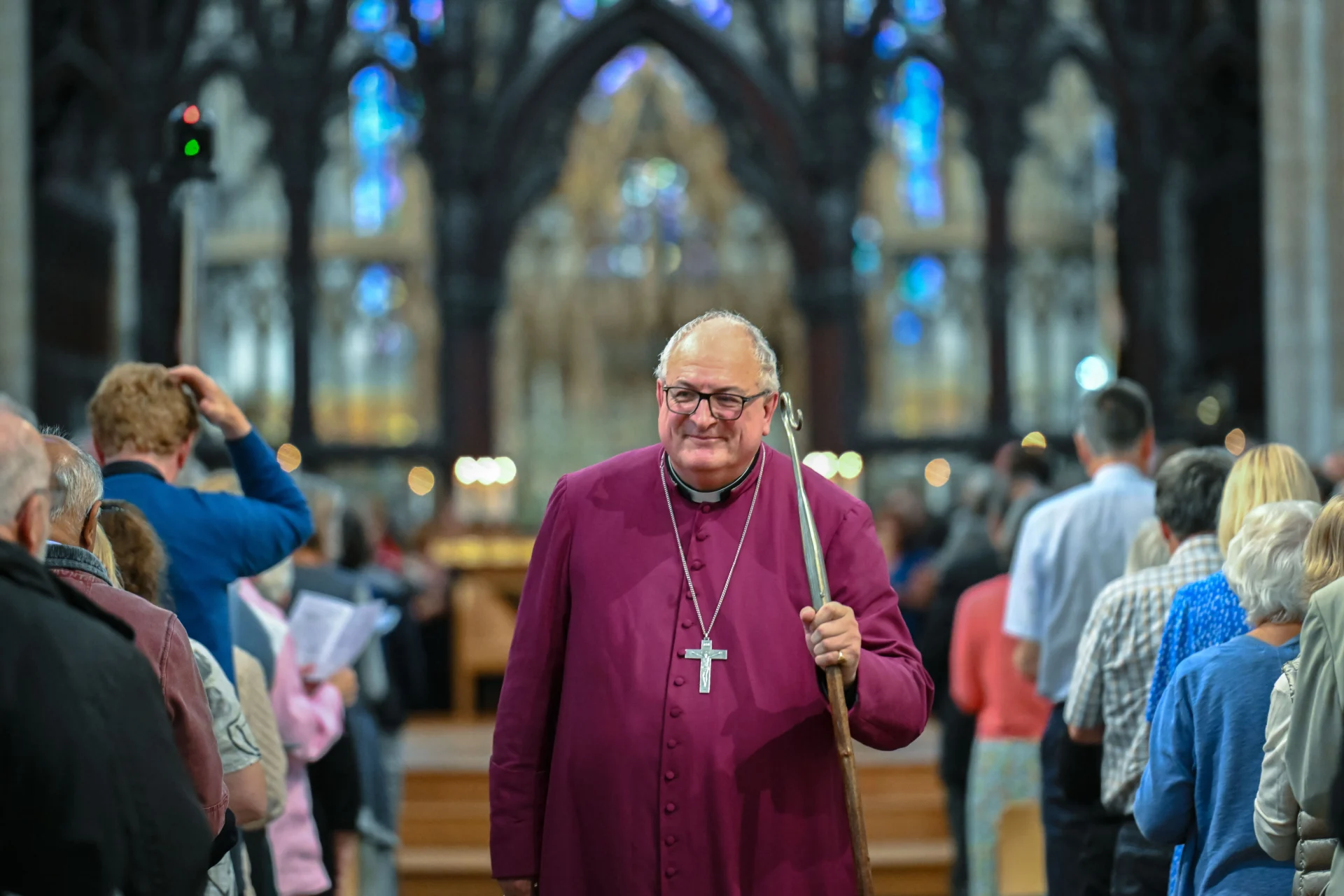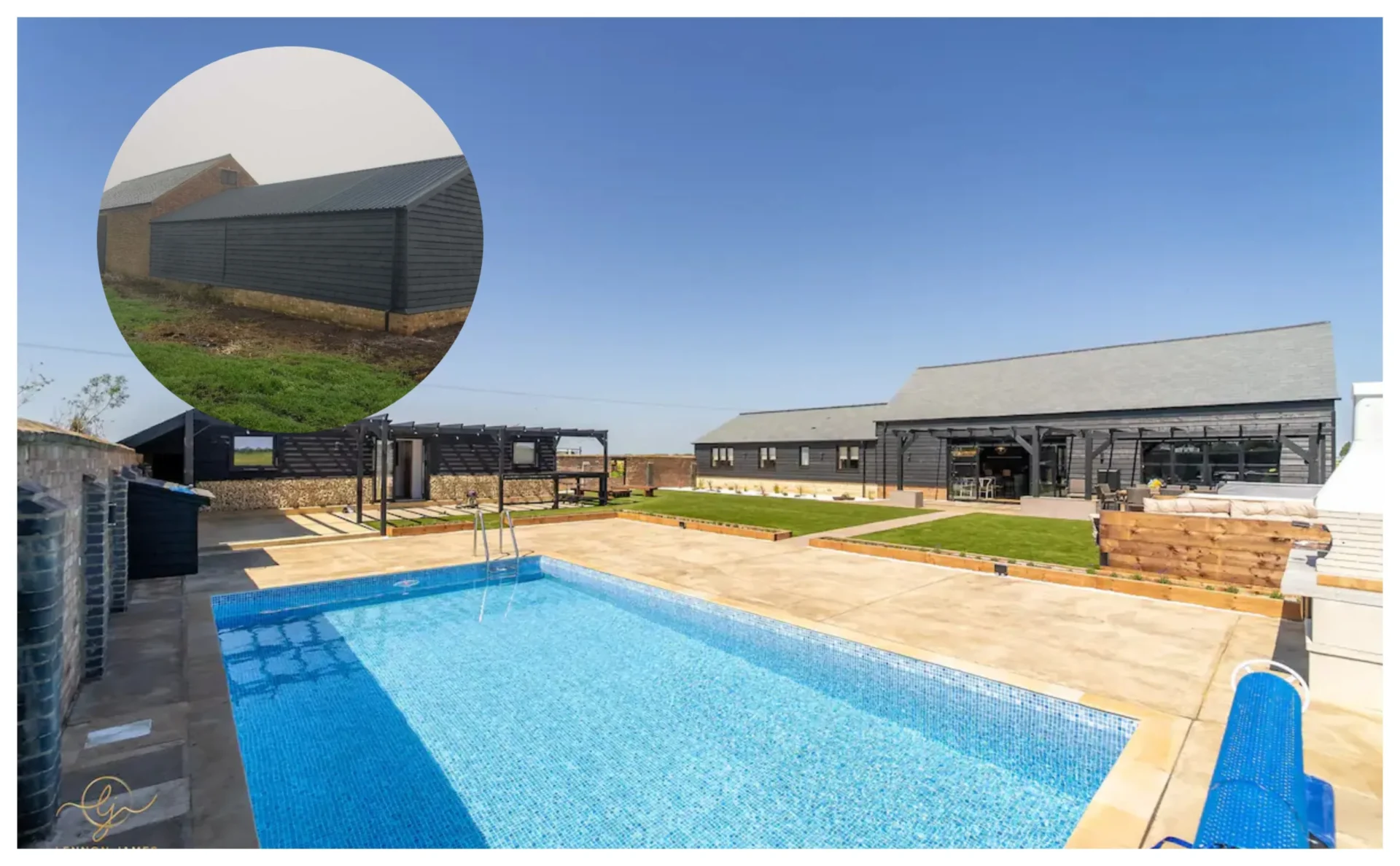A planning inspector ruled that two large homes can be built in the garden of a former Cambridgeshire pub that is now a successful Indian restaurant.
Three different appeals were submitted by Cordage 28 Ltd after East Cambridgeshire turned down applications to develop the site next to the Crown Inn, 14 Church Street, Fordham CB7 5NJ.
But the Planning Inspectorate has ruled that two 4-bedroom homes can be built next to what is now the Indian Garden restaurant.
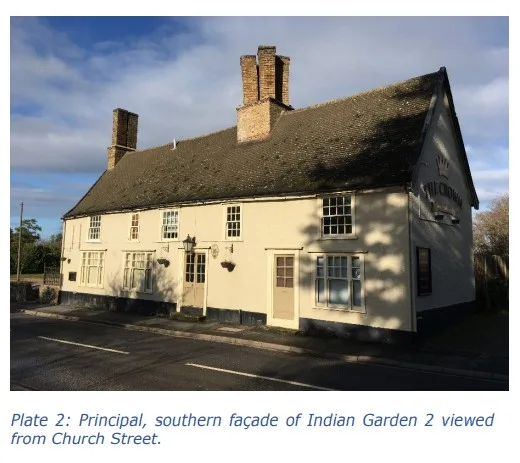
The Crown Inn was a public house until recently but planning permission was granted for a change of use to a restaurant in February 2021.
David Reed, the inspector who heard the appeal, said the main issues were the effect on the character and appearance of the area, including the effect on the significance of the adjacent Grade II listed building and the Fordham Conservation Area (CA).
He also had to judge whether it would lead to highway safety risks as a result of the restaurant delivery arrangements or insufficient parking spaces leading to on-street parking in the vicinity.
Mr Reed also considered whether the loss of parking spaces would threaten the long-term viability of the restaurant.
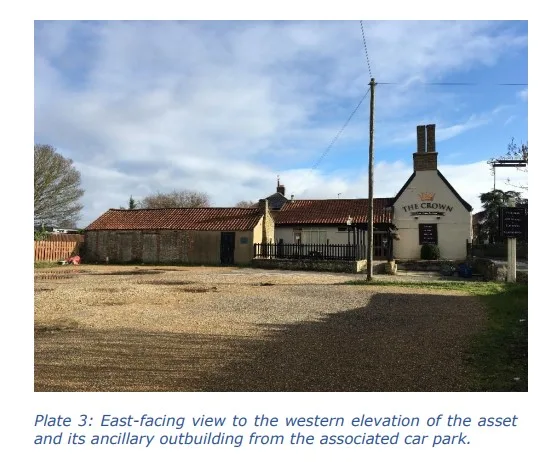
And would the homes provide acceptable living conditions for future residents with regard to access to their dedicated car parking spaces and/or noise and disturbance from the restaurant car park?
In each case a strip of car parking would be retained adjacent to the restaurant.
“Other than their layout and detailed house designs, the three schemes raise very similar issues and unless specifically stated otherwise are dealt with together in this decision,” he said.
He pointed out that The Crown Inn was an important public house in the village from the 1760s but obviously without a large car park until the late 20th century.
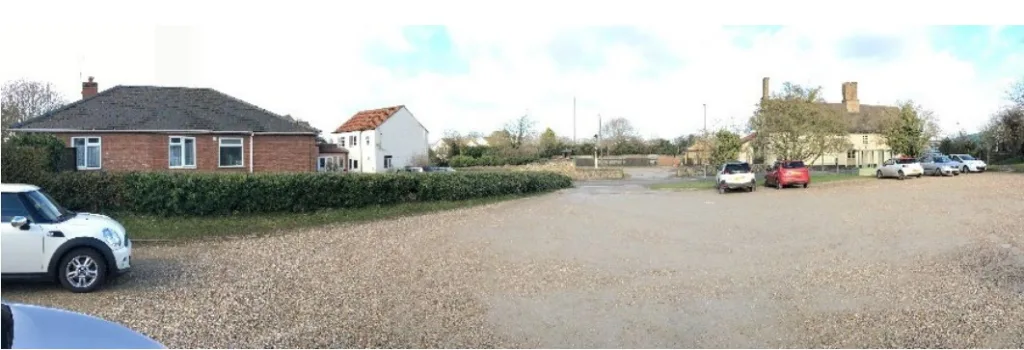
“Contrary to the council’s view, in its village street setting the significance of the listed building would not be diminished by development on the appeal site,” he said.
“Buildings previously lined the site frontage, and the proposals would not block the important view of the gable end when approaching from the west.
“The outbuilding and principal southern elevation would be unaffected.
“Overall, the appreciation and understanding of the building as an historic village roadside inn does not depend on an open setting to the west and would be unaffected by two new dwellings.
“Indeed, the large expanse of empty car park and/or parked cars detract from its setting.”
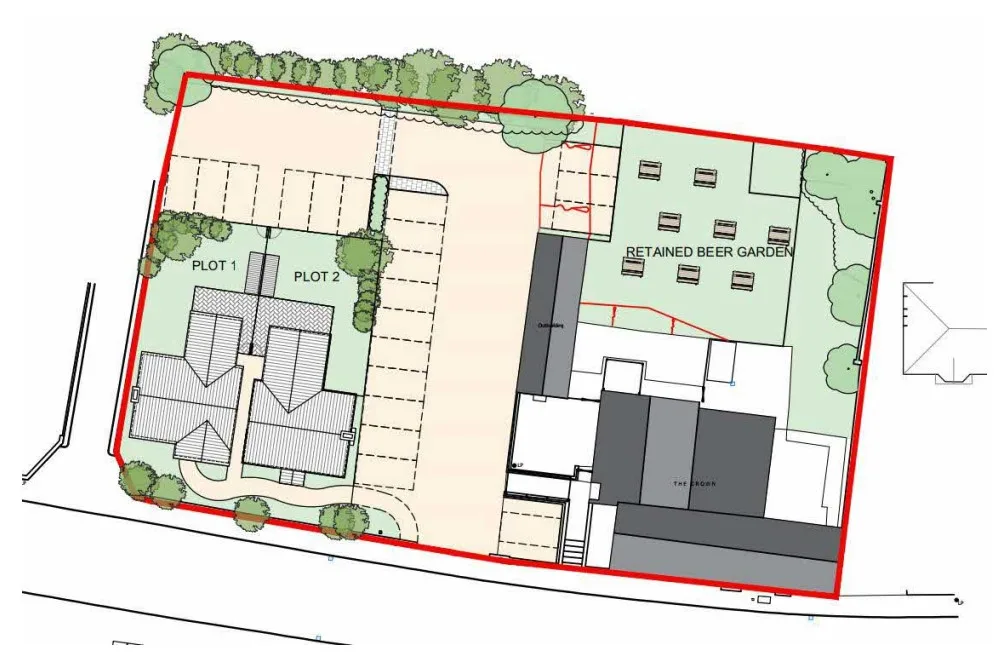
Mr Reed said that in relation to the character and appearance of the Fordham CA more generally “and this section of Church Street in particular, unfortunately no CA appraisal has been prepared and the council’s evidence includes no analysis”.
He said of the schemes before him, the one now approved “would positively enhance the CA and the setting of the listed building.
“It would enhance the character and appearance of the area, would not detract from the significance of the adjacent Grade II listed building and would enhance the Fordham CA”.
Mr Reed said the site forms part of a large car park serving the adjacent restaurant which is not laid out but provides about 20 spaces, maybe more.
Under the proposals 14 marked out spaces would be provided, including one disabled space.
He said the council argued that 44 spaces should be provided for the restaurant to meet the 1 space per 5 m² parking standard set by policies and the shortfall will lead to on-street parking and a danger to highway safety in the vicinity at peak times.
“However, this shortfall is based on the floorspace of the whole building, about 220 m², whereas the floorspace of the ground floor restaurant is just 119 m², suggesting the provision of 24 spaces,” he said.
“In addition, the standard is a maximum figure, not a requirement, allowing a lower level of provision depending on the circumstances.”
There was ample unused capacity in the vicinity with the large open and unregulated car park opposite and long stretches of unrestricted kerbside parking on Church Street.
He said that any overspill on-street parking is thus likely to be limited and infrequent, with inconsiderate on-street parking leading to highway safety issues correspondingly unlikely.
“Contrary to the council’s concerns, the local highway authority is satisfied that highway safety would not be compromised, concluding that the car park would be an adequate size to accommodate the demand from the restaurant and, subject to conditions, the delivery arrangements would be satisfactory,” said Mr Reed.
“For these reasons the proposals would not lead to significant highway safety risks as a result of insufficient parking spaces leading to on-street parking in the vicinity or unsatisfactory delivery arrangements.”
Mr Reed said the council was concerned that the long-term viability of the restaurant could be affected by the loss of car parking.
But he said the provision of 14 spaces would be sufficient to support the use in addition to the alternative parking options in the vicinity.
“It follows that the long-term viability of the use, and therefore the future of the listed building, would not be prejudiced by the loss of car parking,” he said.
“The need for car parking to support any future changes of use can only be speculative but there is no reason to suggest that significantly more off-street parking would be a critical factor in securing an alternative use for the listed building, or indeed use as an alternative community facility.”
He concluded that none of the schemes proposed would have posed significant highway safety risks, affect the long-term viability of the restaurant or provide unacceptable living conditions for future residents.
In the circumstances, he concluded, permission should be given to the scheme allowed.
Mr Reed said the applicant objects to a condition removing permitted development rights for the erection of gates across the site access but this was necessary to ensure access at all times for resident’s cars and restaurant delivery vehicles without the inconvenience and highway safety risks of stopping to open gates.
“A condition to limit restaurant deliveries to outside opening hours is also necessary in the interests of highway safety,” he said.
“Finally, conditions are necessary to ensure any archaeological remains are investigated and biodiversity enhancements are secured to protect the interests concerned.”
The Crown Inn at Fordham was a public house until recently but planning permission was granted for a change of use to a restaurant in February 2021. Now the owners have won the right to build two homes within the car park.

